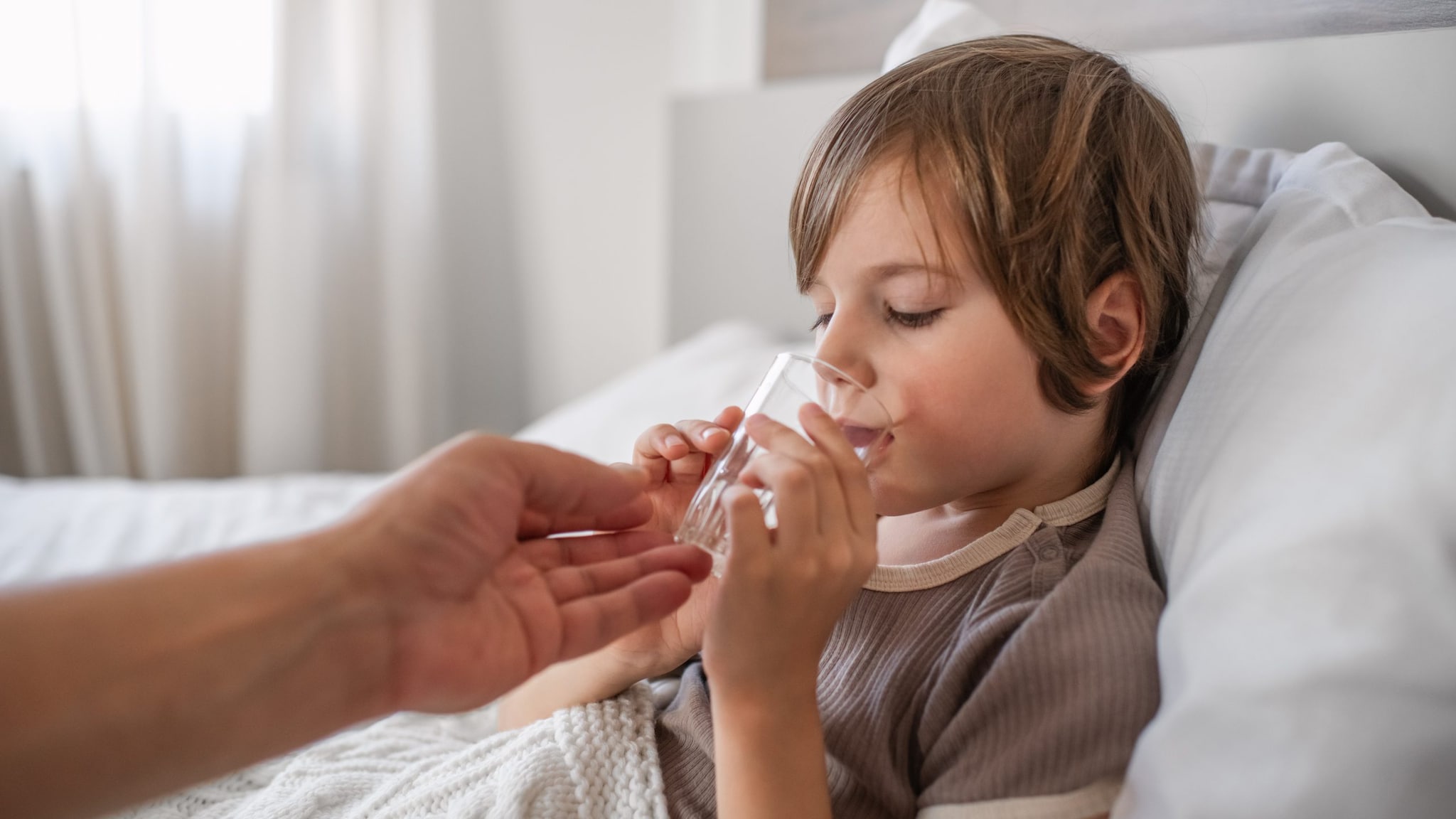Key points
- Some kinds of Salmonella can cause diarrhea.
- People with diarrhea should drink extra fluids to prevent dehydration.
- Call the doctor before using anti-diarrheal medication.
- Most people recover without using antibiotics.

What you need to know
Fluids
People with diarrhea should drink plenty of fluids to prevent dehydration.
Dehydration is not having enough water in the body. Signs of dehydration include little or no peeing, having very dark pee, being very thirsty, having a dry mouth or throat, feeling dizzy or lightheaded, and crying without tears.
Do not wait
Anti-diarrheal medication
Talk to your healthcare provider before taking anti-diarrheal medication, such as Imodium®*.
Taking anti-diarrheal medication might help with diarrhea and cramps, but it might make your illness last longer.
Some people should not use anti-diarrheal medication.
- Do not use anti-diarrheal medication with
- Bloody diarrhea
- Diarrhea and a fever
- Diarrhea that has lasted more than 2 days
- Bloody diarrhea
- Do not use anti-diarrheal medication containing bismuth subsalicylate with children younger than 12. Medications with bismuth subsalicylate include Pepto-Bismol® and Kaopectate®*.
Antibiotics
Reminder
Antibiotics are sometimes used to treat severe intestinal illness. They also are sometimes used to treat people at risk for severe illness. But the good news is that most people with Salmonella infection recover without needing to take antibiotics.
*The use of trademarks is for identification only. It does not imply an endorsement by the Public Health Service or the U.S. Department of Health and Human Services.
Prevention
Protect others when you have diarrhea.
- Wash your hands thoroughly with soap and water for at least 20 seconds during key times, including after using the toilet.
- Do not share your food with others.
- Do not handle, prepare, or serve food to others, if possible.
- Stay home from childcare, school, and work while sick or until the health department says it is safe to return.
- Do not swim or soak in water that is shared with other people.
- Water shared with other people includes pools, hot tubs, lakes, ponds, and the ocean.
- Water shared with other people includes pools, hot tubs, lakes, ponds, and the ocean.
- Wait to have sex.
Be extra careful about practicing good hygiene for at least 2 weeks after diarrhea ends. You can continue to shed (get rid of) Salmonella in poop even if you no longer have diarrhea.
